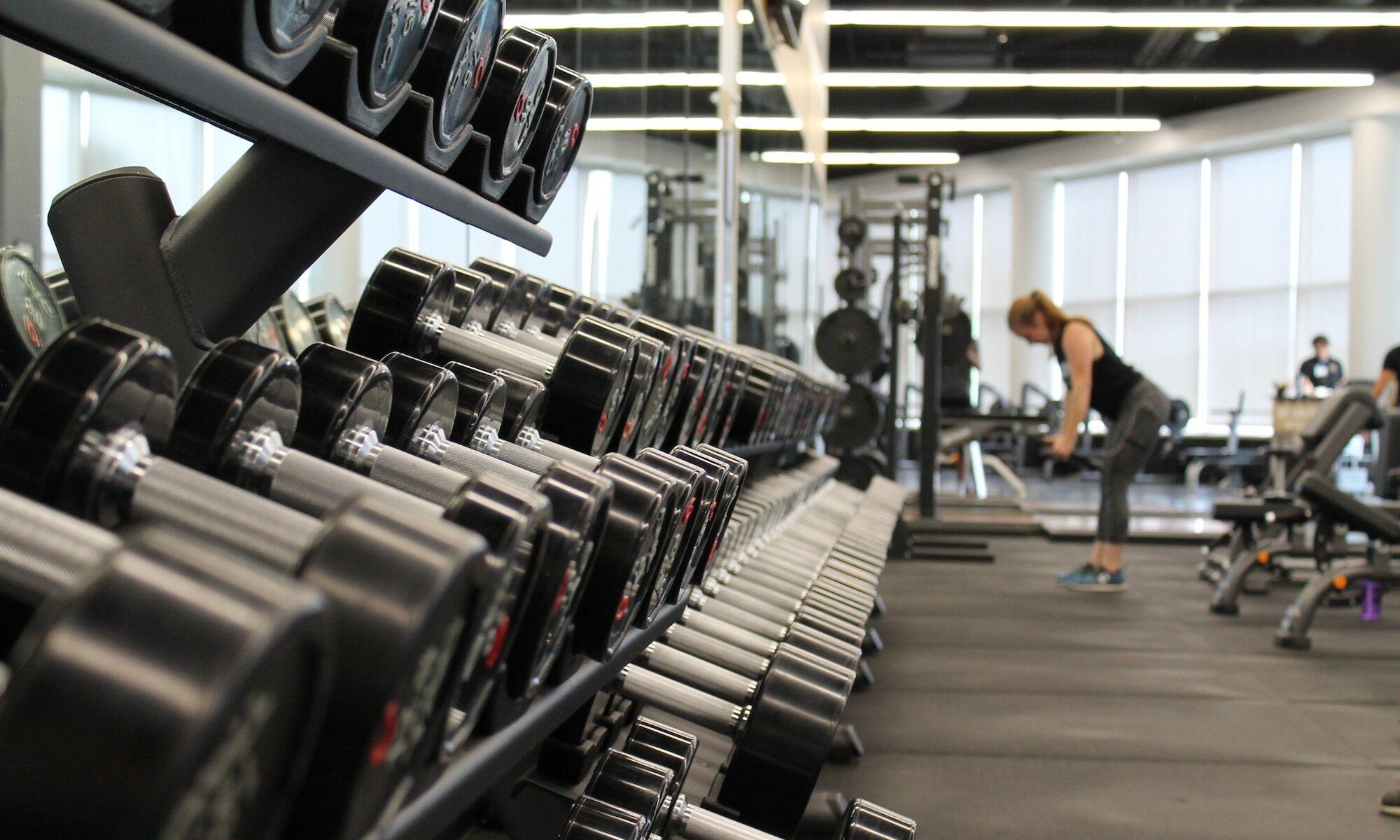Discover strategies to optimize recovery for maximum performance. Improve sleep, nutrition, and active recovery techniques. Prioritize mental and emotional well-being.
Recovery is often overlooked, but it plays a crucial role in maximizing performance. Whether you’re an athlete pushing your physical limits or someone striving for peak mental performance, optimizing recovery is key. This article explores various strategies and techniques that can help you recover efficiently and effectively, enabling you to achieve your goals and perform at your best. From restorative sleep to proper nutrition and active recovery methods, discover how you can give your body and mind the support they need for optimal performance.
Importance of Recovery
Recovery is an essential aspect of any athlete’s training program. It refers to the period of time and the strategies used to restore the body and mind after intense physical activity. Understanding the role of recovery in performance is crucial for athletes looking to maximize their potential and achieve peak performance. By exploring the benefits of optimal recovery and recognizing the risks of inadequate recovery, you can take steps to enhance your recovery strategies and improve your overall performance.
Understanding the role of recovery in performance
Recovery plays a fundamental role in an athlete’s performance. When you engage in physical activities, such as intense workouts or competitions, your body undergoes strain and stress. This strain and stress lead to the breakdown of tissues, depletion of energy stores, and the accumulation of waste products in the body. Recovery allows the body to repair damaged tissues, replenish energy stores, and remove waste products, ensuring the body is in an optimal state for future performances.
Exploring the benefits of optimal recovery
Optimal recovery offers numerous benefits that can significantly enhance your performance. Firstly, it reduces the risk of overuse injuries by giving your body enough time to repair and rebuild damaged tissues. Furthermore, it improves muscle strength and endurance by allowing your muscles to adapt and grow stronger during the recovery phase. Additionally, optimal recovery enhances your immune system, reducing the likelihood of falling ill and missing training sessions or competitions. Moreover, it improves mental focus and concentration, enabling you to perform at your best when it matters the most.
Recognizing the risks of inadequate recovery
Insufficient recovery can have detrimental effects on both your physical and mental well-being, as well as your performance. Without adequate recovery, your body is more prone to injuries and overuse syndromes. Lack of recovery also leads to decreased muscle strength and endurance, inhibiting your ability to perform at your best. Additionally, inadequate recovery can affect your mood, motivation, and overall mental state, leading to decreased focus and concentration during training or competitions. Neglecting recovery can become a vicious cycle, ultimately impeding your progress and hindering your performance potential.
Physical Recovery Strategies
Physical recovery strategies are essential for promoting tissue repair, replenishing energy stores, and reducing muscle soreness. Incorporating the following strategies in your recovery routine can significantly improve your overall physical recovery:
Rest and sleep
Rest and sleep are crucial for allowing your body to recover from physical stress. Aim to get 7-9 hours of quality sleep per night and incorporate regular rest periods throughout the day to allow your body to recharge and recover.
Nutrition and hydration
Proper nutrition and hydration are vital for maximizing recovery. Consume a balanced diet that includes an adequate amount of macronutrients (carbohydrates, proteins, and fats) to provide your body with the necessary building blocks for tissue repair and energy replenishment. Additionally, staying hydrated throughout the day is essential for optimal bodily functions.
Active recovery techniques
Engaging in low-intensity exercises, such as gentle cycling or swimming, promotes blood flow and helps flush out waste products from the muscles, accelerating recovery. Active recovery can also include activities like stretching or light yoga sessions to improve flexibility and mobility.
Sports massage and bodywork
Sports massage and bodywork techniques are valuable tools for relieving muscle tension, increasing blood circulation, and promoting relaxation. Consider scheduling regular sessions with a qualified therapist to aid in your physical recovery.
Mental and Emotional Recovery Strategies
Recovery is not solely about the physical aspects; mental and emotional recovery is equally important. The following strategies can help you restore your mental and emotional well-being:
Stress management techniques
Identify the sources of stress in your life and develop effective stress management techniques. This may include deep breathing exercises, journaling, or engaging in activities that you find enjoyable and relaxing.
Mindfulness and meditation
Incorporating mindfulness and meditation practices into your daily routine can help calm the mind, reduce anxiety, and enhance focus. Take a few moments each day to engage in guided meditation or mindfulness exercises to promote mental and emotional recovery.
Psychological counseling and therapy
If you find yourself struggling with mental health issues or experiencing persistent emotional challenges, seeking the guidance of a psychologist or therapist can provide valuable support. They can help you develop coping mechanisms and tools to navigate through challenging times.
Optimizing Sleep for Recovery
Sleep is a cornerstone of recovery and can significantly impact your overall performance. By optimizing your sleep routine, you can enhance your recovery process. Consider the following strategies:
Establishing a consistent sleep schedule
Maintaining a regular sleep schedule helps regulate your body’s internal clock, improving the quality of your sleep. Aim to go to bed and wake up at the same time every day, even on weekends.
Creating a conducive sleep environment
Ensure that your sleep environment is comfortable and conducive to quality rest. Keep your bedroom cool, dark, and quiet. Invest in a comfortable mattress, pillows, and bedding to create a cozy and inviting sleep space.
Improving sleep quality and duration
To improve sleep quality, establish a relaxing bedtime routine that helps signal to your body that it’s time to wind down. Avoid electronic devices and stimulating activities before bed. Additionally, aim for 7-9 hours of uninterrupted sleep each night to give your body ample time to recover and rejuvenate.
Nutrition for Enhanced Recovery
A balanced and nutrient-rich diet plays a crucial role in aiding recovery and optimizing performance. Consider the following nutrition strategies:
Balancing macronutrients
Ensure that your diet includes a balance of carbohydrates, proteins, and healthy fats. Carbohydrates provide the energy needed for intense training, while proteins aid in muscle repair and recovery. Healthy fats support various bodily functions and help reduce inflammation.
Consuming antioxidants and anti-inflammatory foods
Incorporating foods rich in antioxidants and anti-inflammatory properties can help reduce oxidative stress and inflammation in the body. Include colorful fruits and vegetables, omega-3 fatty acids (found in fatty fish, nuts, and seeds), and spices like turmeric in your diet.
Hydration strategies for optimal recovery
Staying adequately hydrated is crucial for optimal recovery. Aim to drink water regularly throughout the day, especially before, during, and after training sessions. Consider using sports drinks or electrolyte-enhanced beverages for more intense workouts to replenish electrolytes lost through sweat.
Active Recovery Techniques
Active recovery techniques involve engaging in low-intensity exercises and activities that promote blood flow and reduce muscle soreness. Incorporate the following into your recovery routine:
Low-intensity exercises and active rest days
On rest days, engage in gentle activities that keep you moving without placing excessive stress on your muscles. This can include walking, swimming, or light cycling. The goal is to promote blood flow without impeding the recovery process.
Incorporating mobility and flexibility exercises
Performing mobility and flexibility exercises, such as dynamic stretches or yoga poses, can improve joint range of motion and muscle flexibility. This aids in injury prevention and allows your body to move more efficiently during training or competitions.
Utilizing foam rolling and self-myofascial release
Foam rolling and self-myofascial release techniques can help release tension and knots in your muscles, improve blood circulation, and promote recovery. Incorporate foam rolling sessions into your post-workout routine or as needed to alleviate muscle soreness.
The Role of Sports Massage and Bodywork
Sports massage and various forms of bodywork offer additional benefits for recovery and performance. Consider the following:
Benefits of sports massage
Sports massage helps relax muscles, reduce muscle tension, increase blood flow, and improve range of motion. It can alleviate muscle soreness, aid in injury prevention, and enhance recovery between training sessions.
Different types of bodywork
Apart from sports massage, other bodywork techniques, such as deep tissue massage, myofascial release, and acupuncture, can provide specific benefits for athletes. Explore different approaches and find what works best for you.
When to seek professional assistance
While self-care practices can be beneficial, there may be instances when seeking the expertise of a professional therapist or bodywork practitioner is necessary. Consider scheduling regular sessions with a qualified specialist to address specific recovery needs or recurring issues.
Managing Stress and Mental Fatigue
The demanding nature of athletic training and competitions can lead to high levels of stress and mental fatigue. Implementing effective stress management techniques and prioritizing self-care can make a significant impact:
Identifying sources of stress
Take time to identify the specific stressors in your life, both related to athletics and personal matters. This awareness will help you develop targeted strategies to manage and reduce stress levels.
Implementing stress management techniques
Experiment with various stress management techniques, such as deep breathing exercises, guided imagery, or engaging in activities you find enjoyable to relieve stress. Find what works best for you and incorporate it into your routine.
Prioritizing self-care and relaxation
Make self-care a priority by engaging in activities that promote relaxation and rejuvenation. This can include hobbies, spending time in nature, or simply doing activities you enjoy that allow you to recharge mentally and emotionally.
Mindfulness and Meditation for Recovery
Mindfulness and meditation practices can have profound effects on mental and emotional well-being. Incorporate the following strategies into your daily routine:
Benefits of mindfulness and meditation
Mindfulness and meditation help cultivate a present-moment awareness, reduce anxiety, enhance focus, and improve emotional resilience. By practicing these techniques regularly, you can strengthen your ability to recover mentally and emotionally.
Practicing mindfulness in daily life
Integrate mindfulness into your everyday activities by focusing your attention on the present moment. Engage fully in each task, whether it’s eating, walking, or training, without judgment or distraction.
Guided meditation and visualization exercises
Utilize guided meditation or visualization exercises specifically designed for athletes. These tools can help you relax, enhance your concentration, and visualize successful performances, thereby improving your overall recovery and performance potential.
Seeking Psychological Support
There may be times when seeking professional psychological support becomes necessary for optimal recovery and performance. Here’s what you need to know:
When to consider counseling or therapy
Consider seeking counseling or therapy when you experience persistent mental health symptoms or when emotional challenges significantly impact your daily life and well-being. Trained professionals can provide guidance, support, and tools to help you navigate through difficult periods.
Exploring different therapeutic approaches
There are various therapeutic approaches available, such as cognitive-behavioral therapy, psychoanalysis, or mindfulness-based therapy. Research different modalities and find a therapist who aligns with your needs and goals.
Building a support network
Developing a support network of trusted individuals, including coaches, teammates, friends, and family, can provide invaluable emotional support. Surrounding yourself with a supportive community can help you navigate challenges, enhance recovery, and maintain a positive mindset.
By understanding the importance of recovery, implementing appropriate strategies, and seeking support when needed, you can optimize your recovery for maximum performance. Prioritize your physical, mental, and emotional well-being, and watch as your athletic potential unfolds. Remember, recovery is not a luxury; it’s an essential component of your journey towards success.


